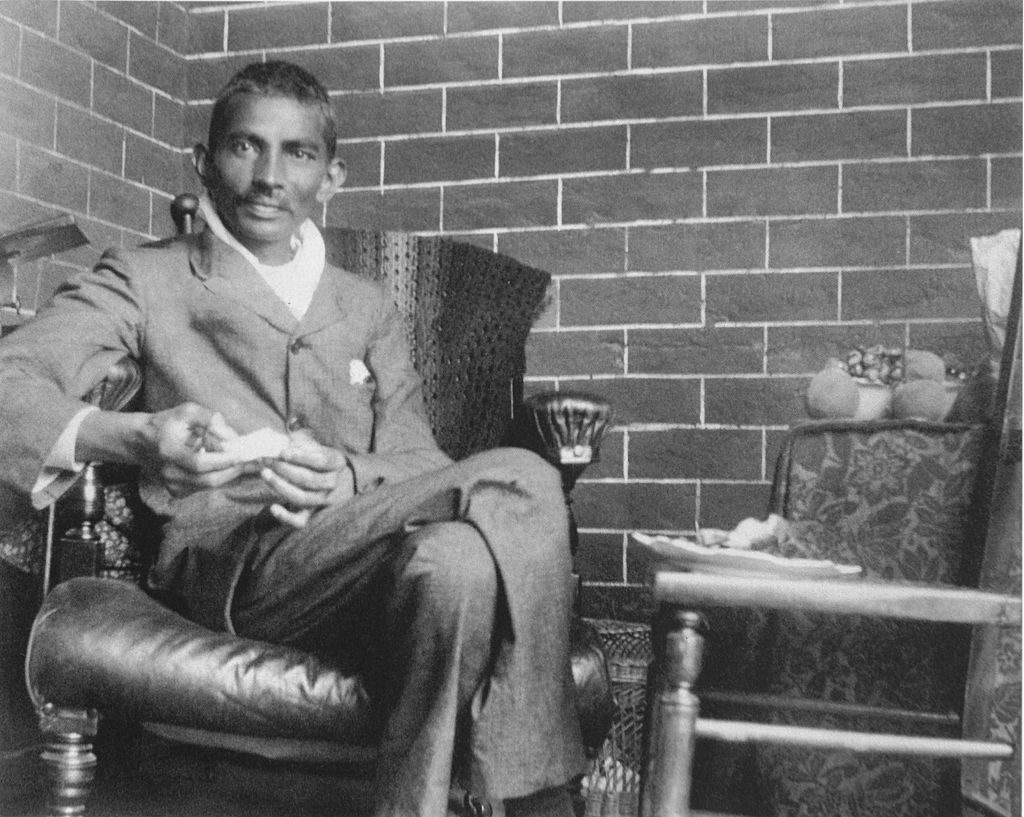Socio-Political Philosophy of M. K. Gandhi: An Analysis
FEATURED RESEARCH PAPER, 22 Nov 2021
Dr. Tarun Gogoi | Academia – TRANSCEND Media Service

Gandhi recuperating at the home of the Rev. J.J. Doke, Gandhi’s first biographer, in Johannesburg, after having been assaulted on February 10, 1908. (Wikimedia)
M. K. Gandhi was a prominent figure in the realm of peace and humanism. He played a noteworthy role in the movement of peace and freedom. He bestowed a lot of ideas relating to socio-political dimension. Gandhi ” s ideas are basically philosophical in nature as he was inspired by various great philosophers of the world.
Gandhi generated ideas to create a positive change in society. We acquire new ideas by studying his thought. No doubt, he was a social engineer who tried to build a new human society where everyone can live peacefully. In case of social change Gandhi always tried to establish a welfare state by means of non-violence and truth. His ultimate dream was sarvodaya, means welfare to all. According to him, we cannot gain anything by violent means.
Because violence brings destruction; but non-violence does not. Non-violence and truth help us to purify our soul. M.K. Gandhi always tried to bring a social change by peaceful means, which contributes a lot in understanding the power of truthfulness, love and affection. Keeping these views in mind this paper is an attempt to understand the socio-political philosophy of M. K. Gandhi and its relevance.
DOWNLOAD PDF FILE: Socio-Political Philosophy of M. K. Gandhi
__________________________________________
International Journal of Research in Social Sciences Vol. 8 Issue 2, February 2018. Email: editorijmie@gmail.com
Tags: Activism, Anti-imperialism, British Colonialism, Colonization, Gandhi, Independence, India, Literature, Nonviolence, Philosophy, Research
DISCLAIMER: The statements, views and opinions expressed in pieces republished here are solely those of the authors and do not necessarily represent those of TMS. In accordance with title 17 U.S.C. section 107, this material is distributed without profit to those who have expressed a prior interest in receiving the included information for research and educational purposes. TMS has no affiliation whatsoever with the originator of this article nor is TMS endorsed or sponsored by the originator. “GO TO ORIGINAL” links are provided as a convenience to our readers and allow for verification of authenticity. However, as originating pages are often updated by their originating host sites, the versions posted may not match the versions our readers view when clicking the “GO TO ORIGINAL” links. This site contains copyrighted material the use of which has not always been specifically authorized by the copyright owner. We are making such material available in our efforts to advance understanding of environmental, political, human rights, economic, democracy, scientific, and social justice issues, etc. We believe this constitutes a ‘fair use’ of any such copyrighted material as provided for in section 107 of the US Copyright Law. In accordance with Title 17 U.S.C. Section 107, the material on this site is distributed without profit to those who have expressed a prior interest in receiving the included information for research and educational purposes. For more information go to: http://www.law.cornell.edu/uscode/17/107.shtml. If you wish to use copyrighted material from this site for purposes of your own that go beyond ‘fair use’, you must obtain permission from the copyright owner.
Read more
Click here to go to the current weekly digest or pick another article:
FEATURED RESEARCH PAPER: